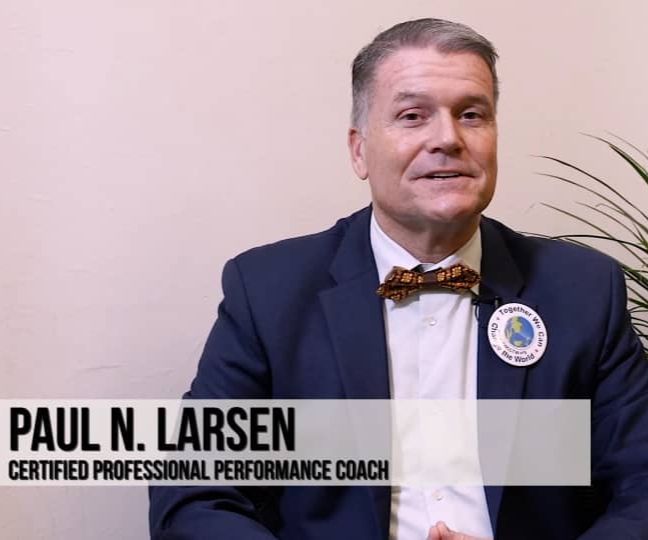Reset Accountability Before Your Next Change Programme

Photo by Jason Goodman on Unsplash.com
There’s an epidemic of underperformance with change programmes in organisations today, and it’s driven by issues with accountability. From broken promises and unrealistic expectations to finger-pointing and cultures of avoidance and blame, accountability issues – and the fear that drives them – are rampant in change programs across business, government, NGOs and beyond.
Do any of these sound familiar as you try to deliver on the latest transformational change initiative?
- You’re struggling with a lack of time, too many commitments and a culture of blame.
- You’re fed up with being the only one who sees things through and takes personal ownership.
- You’ve been let down by a broken promise or expected to do the impossible.
- You’re a leader who knows the change programme could be making better progress, but it’s not clear what’s holding it back.
Simply put, if you have people in your organisation, you have issues with accountability - and they’re impacting performance. And that’s a problem, because as the challenges and opportunities of the post-COVID landscape continue to unfold, so does the need to adapt in order to perform.
Accountability is Central to Both Agility and Innovation
We know that agility and innovation have always been important, but they are emerging as the strategic imperative for organisations to survive and thrive in the current economic context, with the new and emerging patterns of work and business operating. And accountability is central to both. Why?
Because without accountability, nothing sticks: not your latest transformational change initiative, not your best talent, nothing. Without accountability, poor-quality work, decisions, and leadership go unchallenged, and ‘ethical slip’ starts to happen. Without accountability, leaders, teams and organisations fall behind as the scale of disruption, complexity of change, and pace of technological advancement increase. Without accountability, we waste time, money, and energy in a fog of confusion and dysfunctional, ineffective accountability relationships.
From my twenty-plus years as a senior leader and my work with the CEOs, senior executives and leaders who are my clients, I know that accountability underpins change success. And multiple research studies agree. In fact, research suggests that when organisations get accountability wrong:
- 75% of team members see solving problems as ‘someone else’s job’,
- 65% don’t see due dates as real commitments,
- 80% don’t seek and offer feedback often,
- 82% try but fail to hold others accountable (or avoid it altogether), and
- 85% are unsure what the organisation is trying to achieve.
When we get accountability wrong, things get worse without anyone knowing why or accepting the accountability to do something about it. And if we weren’t good at it before (and let’s face it, most of us weren’t), the added complexity of COVID and its impact on employees, team structures and ways of working have made accountability feel even harder.
Related: Facing the Enormous Problem of Who Is in Charge of What
THE 3 ISSUES WE NEED TO ADDRESS

Infographic by Leaderonomics: 3 Issues to Address Before Your Next Change Programme
1. Confusion in understanding
Accountability is often complex, fuzzy and confusing, which means that it means different things to different people – often in the same organisation, and even in the same team.
How consistent is the understanding of accountability in your organisation, change program or team?
2. Concern in application
Accountability is often only asked for once things have gone wrong – the conversations come too late, feel punitive and people are defensive. No wonder it feels so hard to do them well.
How confident do you feel having accountability conversations about your change initiative?
3. Contexts that undermine
A variety of ‘macro’ factors, such as team culture influence the impact and effectiveness of accountability. The challenge is that because it feels so uncomfortable, leaders are unsure how to embed accountability into the culture of their teams and the organisation so that it becomes a normal part of how work gets done.
Is accountability part of your change team culture?
These three issues – confusion, concern and context – are why we need to reset accountability and shift it from a means to punish people to something that can set us up for success. This reset requires a shift in mindsets, attitudes and behaviours so that we can confidently role model, coach, and create contexts and cultures that support accountability.
Discover: How Leaders Can Create A Collaborative Company Culture
The good news is that it doesn’t have to be difficult, expensive or time-consuming. Small shifts in mindsets, attitudes, and leader and team practices can have a big impact on accountability, learning, progress and performance.
Accountability Reset

Infographic by Leaderonomics: 3 Ways to Reset Accountability
Here are three things from it that you can do right now to start an accountability reset with your team:
1. Get real.
Ask: Are the expectations you have of others realistic?
2. Get clear.
Ask: Did you make the expectations clear and explicit?
3. Get curious.
Ask: What factors in the context are impacting accountability?
By resetting accountability, you reduce stress by wasting less time and energy in drama. You save money by creating more-effective change practices. You support higher performance and better-quality change outcomes by enabling forward learning and growth for yourself and the people you lead.
And you get clear on the high talent and potential in your teams, which means you can focus your energy on those people who are engaged in their work and willing to be called to account. So, in our COVID-impacted change environment where the pressure to innovate, adapt and perform is clear and present, the question becomes, can you afford not to?
Before You Go: 6 Ways To Efficiently Evaluate Work-From-Home Employees
Did you find the article interesting? Would you like to know more about organisational change? Check out Necole. Necole is an Artificial Intelligence (AI) powered learning app that that curates personalised learning just for you. To find out more about Necole, click here or email info@leaderonomics.com.
Functional





